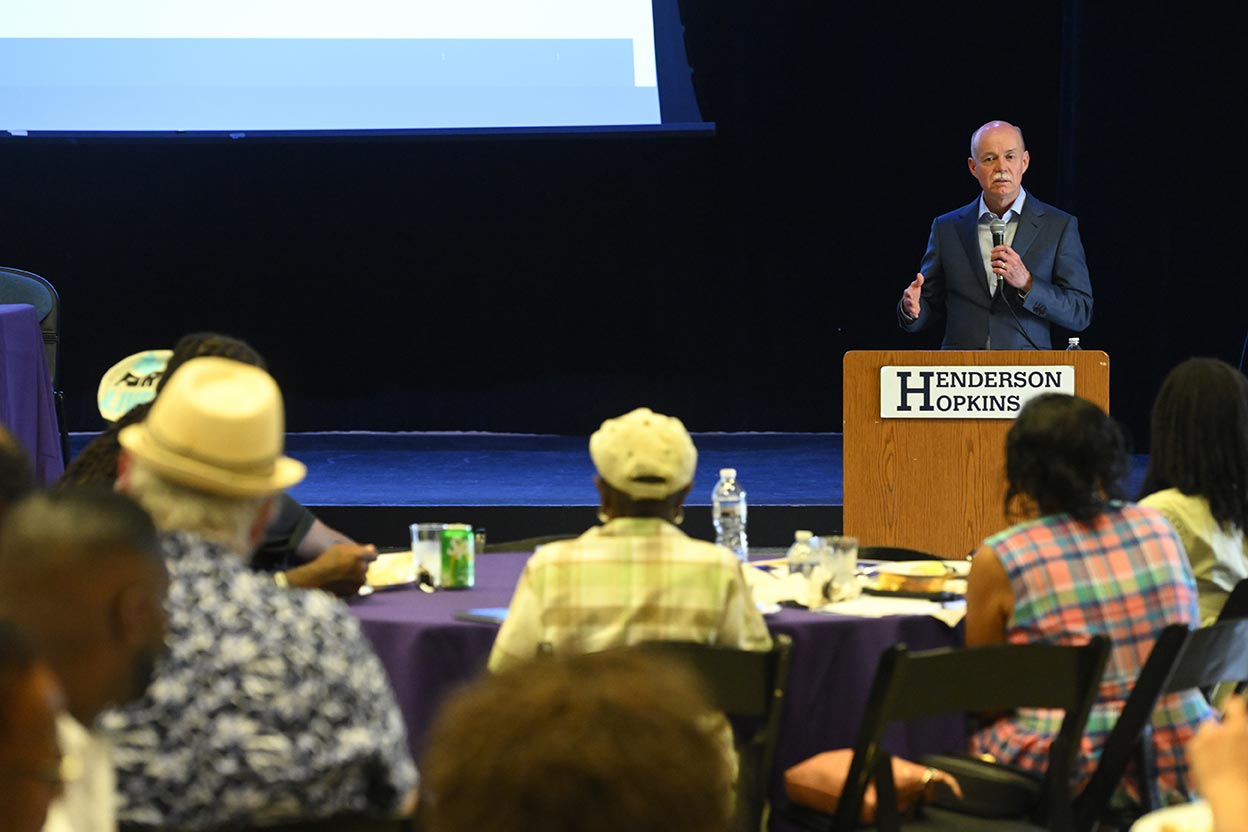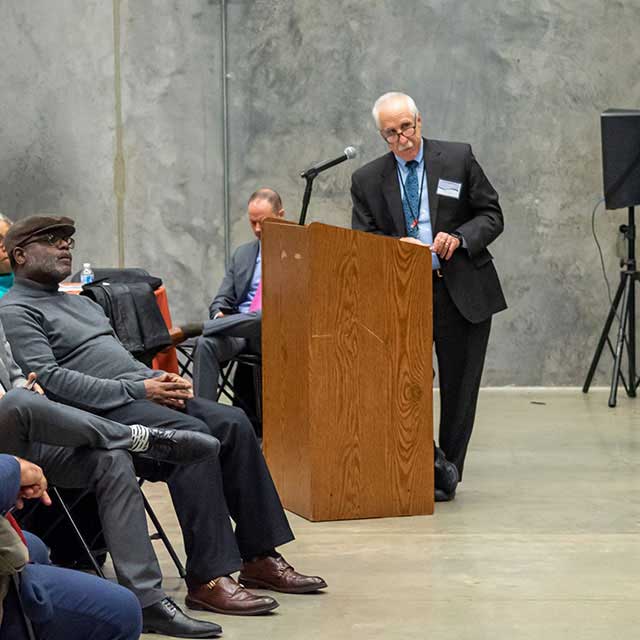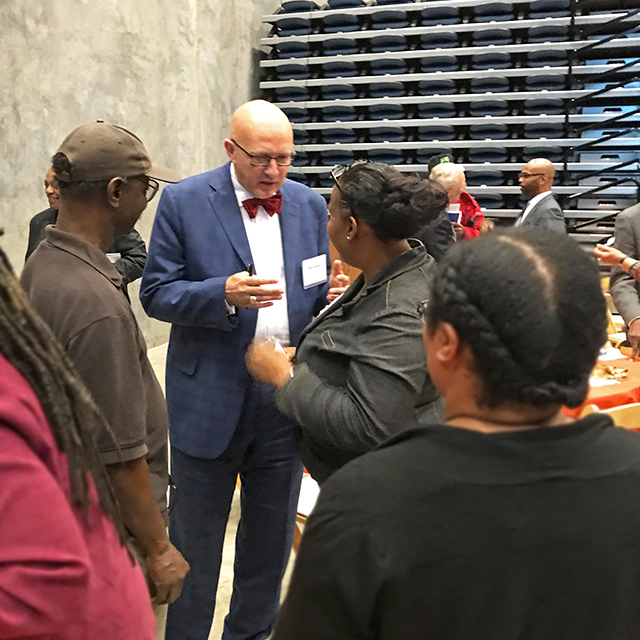DeWeese Hosts Annual Community Conversations Dinner
Neighborhood leaders convene to meet Johns Hopkins Medicine’s CEO, learn about progress.

Theodore DeWeese, interim dean of the Johns Hopkins University School of Medicine and CEO of Johns Hopkins Medicine, speaks to community leaders from East Baltimore.
Will Kirk, Johns Hopkins University
The interim dean of the Johns Hopkins University School of Medicine and CEO of Johns Hopkins Medicine introduced himself to more than 80 leaders from East Baltimore neighborhoods on July 18 at the Henderson-Hopkins School.
Theodore DeWeese, who has held the interim positions since last summer, hosted the annual Community Conversations dinner at the Ashland Avenue elementary school, where he shared information about his background and his priorities for continued partnership between the institution and the people who live on the city’s east side.
Tonight is about us becoming even better neighbors.
Interim Dean and CEO Theodore DeWeese
“Tonight is about us becoming even better neighbors,” DeWeese told the group, which consisted of leaders from nearly two dozen East Baltimore communities, stretching from Fells Point to the city’s eastern edge.
In addition to DeWeese’s introduction, the first in-person Community Conversations event since the pandemic featured a panel of Johns Hopkins leaders who share DeWeese’s dedication to a strong and healthy east side. Katina Williams, chief financial officer for The Johns Hopkins Hospital, Damani Piggott, associate vice provost, and Maria Tildon, vice president of government, community and economic partnerships, each discussed their commitment to a strong relationship between Johns Hopkins and its neighbors.
Tildon, who has spent her career helping businesses and institutions support communities locally and nationally, announced that Johns Hopkins’ biennial community health needs assessment would be distributed in early August. The needs assessment provides information that guides many of the institution’s efforts to improve health for people who live in the neighborhoods surrounding its Baltimore hospitals.
DeWeese addressed three areas identified in previous Community Conversations as critical to East Baltimore: economic opportunity, community health and education.
He reiterated Johns Hopkins’ commitment to local hiring, pointing out that nearly 3,200 people from East Baltimore have been hired since 2015.
Entry-level positions are available immediately, he said, as are professional-level positions.
He cited Johns Hopkins’ efforts to hire people returning from incarceration. “Over the last decade, between 5% and 10% of our hires have been people who have been in the justice system.”
DeWeese also mentioned the Summer Jobs Program, which has employed as many as 400 Baltimore students each summer since 1994.
“We’re honored to help introduce these future leaders to topics like health care, personal finance and job readiness,” DeWeese said.
In the area of health, he touted an evidence-based hospital program designed to stem the tide of gun violence that plagues many neighborhoods in East Baltimore. Break the Cycle seeks to prevent retaliations or escalations that frequently follow gun violence.
“It’s not enough to treat the injuries,” he said. “We want to make sure people aren’t harmed again.”
DeWeese updated Community Conversation attendees on efforts to increase education and learning opportunities for East Baltimore students, including a $33 million investment in Henderson-Hopkins School’s new track and field area. Henderson-Hopkins is a partnership between Baltimore City Public Schools and The Johns Hopkins University.
Johns Hopkins Medicine invests in several other East Baltimore schools, including Tench Tilghman Elementary/Middle School on Patterson Park Avenue, which received more than $100,000 to replace broken and outdated equipment and to support a social worker position at the school.
Finally, DeWeese spoke about the Elijah Cummings Scholars Program, established in 2005 and named for the late U.S. congressman and civil rights leader. The program covers the cost of attending The Johns Hopkins University for “high-achieving public-school students from Baltimore and Washington, D.C., who come from families of limited means.”
To date, DeWeese said, Johns Hopkins has invested over $40 million in more than 300 Cummings scholars.


